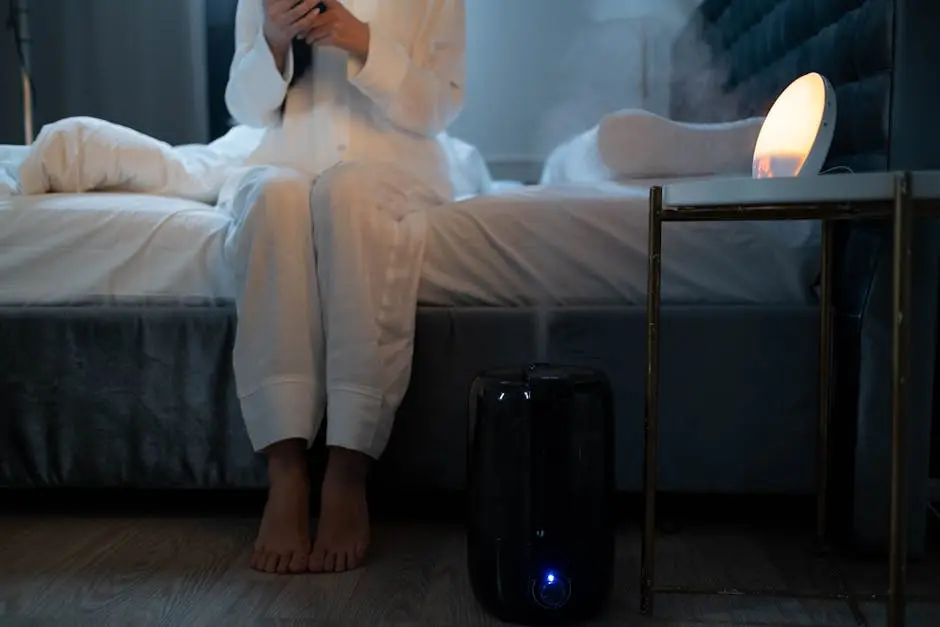Indoor air quality is crucial for maintaining a healthy, comfortable living environment. One effective way to enhance this quality is by using HVAC humidifiers. These devices not only regulate humidity levels but also contribute to cleaner, healthier air. In this blog, we’ll explore how HVAC humidifiers improve indoor air quality, making your home a better place to live.
Understanding Indoor Air Quality
Indoor air quality refers to the air condition inside a building, influenced by factors such as pollutants, humidity, and ventilation. Poor air quality can lead to health issues, highlighting the importance of effective air management methods like HVAC humidifiers. According to the Ultimate Guide, understanding the pollutants that thrive in indoor environments is essential for improving air quality. These pollutants often include dust mites, VOCs, and mold, which can be managed by maintaining optimal humidity levels.
One fundamental external factor is humidity, which directly influences the concentration of pollutants indoors. High humidity can lead to the proliferation of mold and dust mites, while low humidity may increase airborne viruses. Balancing moisture is pivotal for indoor comfort and health, making humidifiers a necessary tool in your arsenal against poor air quality.
What Are HVAC Humidifiers?
HVAC humidifiers are devices integrated into your heating, ventilation, and air conditioning system. They help maintain optimal humidity levels, prevent dryness, and enhance air quality, offering a comfortable and healthy indoor environment. These humidifiers can release the right amount of moisture to ensure that air retains enough humidity to make breathing easier and reduce respiratory irritations.
Different types of HVAC humidifiers, like steam and ultrasonic models, serve various needs. Steam humidifiers work efficiently in large homes and provide precise humidity level control. Ultrasonic models use high-frequency vibrations to produce a cool mist and are energy efficient. Choosing the right humidifier for your home not only depends on the size and layout but also on personal preferences and specific air quality requirements.
How HVAC Humidifiers Work
These humidifiers work by adding moisture to the air through the HVAC system. They balance humidity levels, especially during cold months when heating systems tend to dry out the indoor air, ensuring a comfortable living space. The system monitors the existing humidity and releases water vapor accordingly, effectively maintaining a home environment conducive to health and comfort.
Furthermore, the balance of humidity these devices offer can affect pollutant behaviors. Some chemicals and pollutants have particular affinity to excess moisture, either thriving or diminishing as humidity changes. Therefore, regulating humidity through an HVAC humidifier is an efficient way to keep those undesired elements at bay while fostering an indoor atmosphere that supports well-being.
Health Benefits of Maintaining Proper Humidity
Maintaining proper humidity levels through HVAC humidifiers can alleviate symptoms of dry skin, sinus congestion, and respiratory issues. It also aids in preventing the spread of bacteria and viruses, contributing to overall better health. Humidifiers help in reducing issues like nosebleeds and itchy eyes, which are common in dry environments, enhancing the comfort of indoor living.
Proper humidity control curtails the survival and spread of viruses and bacteria direct in air. According to experts, optimal relative humidity levels (around 40-60%) can potentially reduce transmission rates of airborne diseases. This makes HVAC humidifiers especially useful in homes with children and elderly individuals who are more susceptible to these health risks.
Additionally, balanced humidity can improve sleep patterns by reducing snoring and promoting better respiratory function. For those suffering from allergies or asthma, HVAC humidifiers can dramatically enhance the quality of life by eliminating irritants like dry air, which exacerbate such conditions, encouraging a peaceful and rejuvenating rest period.
Reducing Allergens and Pollutants
By keeping humidity at ideal levels, HVAC humidifiers can reduce airborne allergens like dust mites and mold spores. This can significantly decrease allergic reactions and asthma symptoms, improving overall air quality. When the air is too dry, particles and pollutants remain airborne, aggravating allergies and sensitivities. Humidifiers counteract this by weighing down these particles, effectively minimizing their presence in the air you breathe.
Moreover, pollutants such as volatile organic compounds (VOCs) exhibit increased emission rates in low humidity environments, making regulation by humidifiers an essential factor in maintaining indoor air quality. Utilizing the combined features of filtration and humidification aids in washing indoor air of such irritants.
Choosing the Right HVAC Humidifier for Your Home
There are various types of HVAC humidifiers available, including steam, evaporative, and ultrasonic models. Selecting the right one depends on your home size, climate, and specific air quality needs. Steam humidifiers are renowned for their efficiency in large homes, offering precise humidity control, whereas evaporative models are more common for moderate climates.
For those seeking energy efficiency, evaporative and ultrasonic models are excellent choices. Ultrasonic humidifiers minimize electrical consumption by generating mist through high-frequency vibrations. Your choice should align with your lifestyle and air health aspirations, ensuring that personal comfort and air quality are optimized in tandem.
Begin your journey towards improved indoor air quality by exploring options with Tech Star HVAC, where targeted solutions can be found to match your specific needs. For further guidance, visit our page on Tips for Improved Indoor Air Quality and take the guesswork out of choosing the right HVAC humidifier.
The Key Benefits of HVAC Humidifiers for Your Home
HVAC humidifiers play a vital role in maintaining optimal indoor air quality. By controlling humidity levels, reducing airborne pollutants, and fostering a healthier living environment, these devices are a valuable addition to any home. Understanding how HVAC humidifiers work and their benefits can lead to smarter decisions about indoor air quality and well-being. For more insights on improving your home’s air quality, delve into our Ultimate Guide to Improving Indoor Air Quality and take the first step toward a healthier home.




